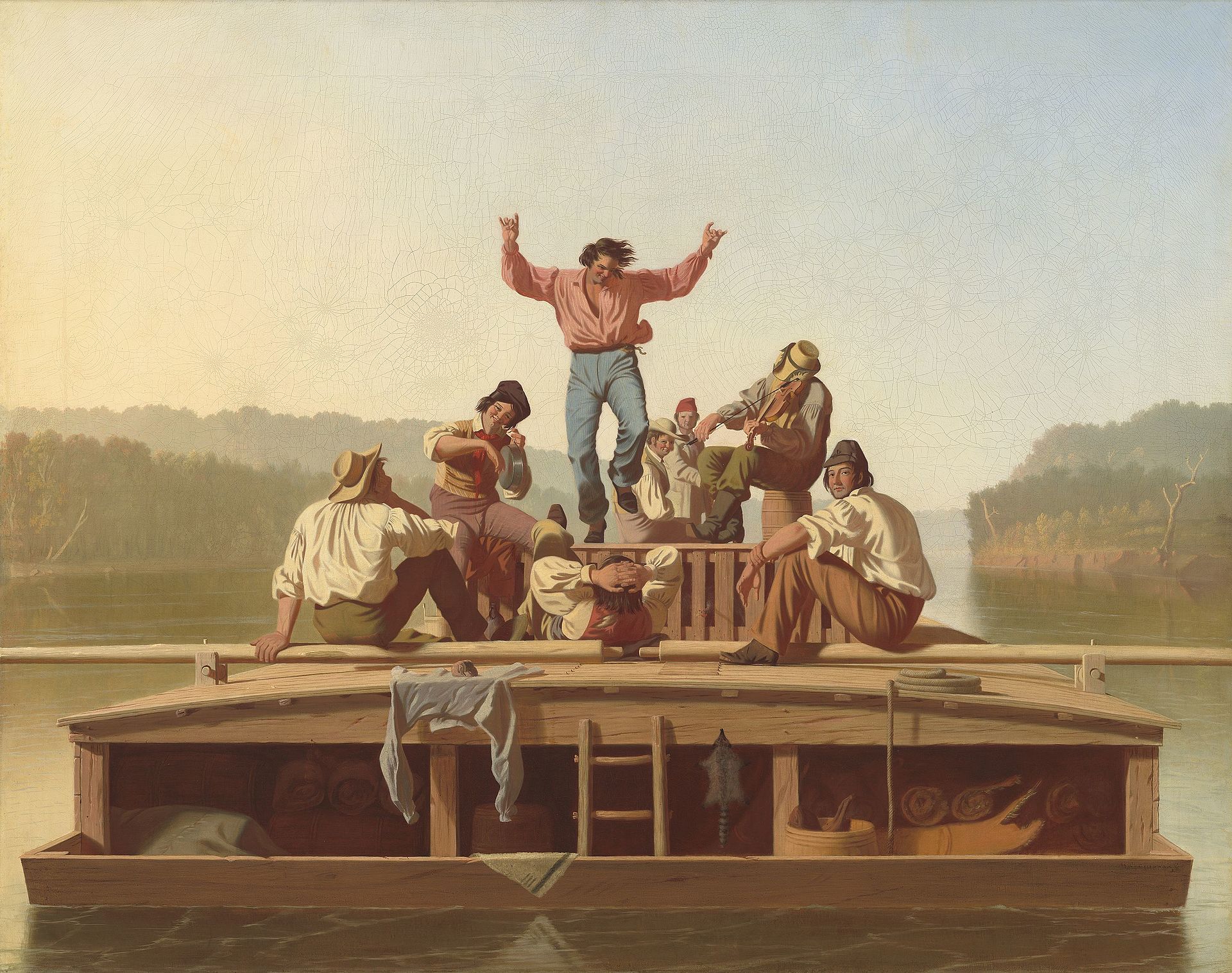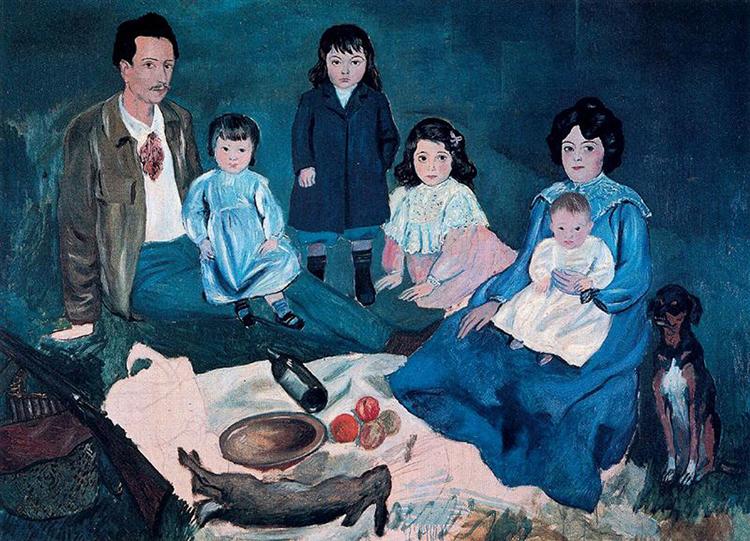Without stronger kin, the American way grows fatally weak.
Freedom is Not Enough

The American way of life is more than denatured individualism.
Thomas Klingenstein covers an enormous amount of ground in his lively and appealingly direct essay, and it would be impossible to comment on every interesting aspect of it point by point. But there are a few items that deserve highlighting, particularly considering the frankly political aims behind the writing of the essay.
I mean “political” in the best sense of the term, referring to those things that enhance and enrich the life of the polity—of that fragile res publica within which we live, move, and have our being as citizens.
This inevitably takes on an especially partisan cast at the moment, as the Democratic Party seems to have abandoned altogether the idea of a loyal opposition and the Republican Party, for all its faults, represents the closest thing to a party of sanity. But Klingenstein also takes seriously the belief that politics is downstream from culture, an observation to which conservatives have paid lip service for decades, but without (for the most part) being willing to act as if they believe it. In the end, his essay is more about culture than about politics.
Of course, the relationship between politics and culture is always complex and reciprocal. Daniel Patrick Moynihan was famous for his observation that “The central conservative truth is that it is culture, not politics, that determines the success of a society,” while “the central liberal truth is that politics can change a culture and save it from itself.”
Moynihan ought to have added that politics, like aggressive chemotherapy, can wreck a culture as readily as it can save it, an insight to which the past 50 years of American life, or the past 250 years of Western life, lends vivid support. But to have said so would only have underscored what both sides of his formulation already implied: the well-being of our culture is the ultimate source from which our political and economic health flows.
This is why Klingenstein’s invocation of “the American way of life” and the need for its defense, although it will strike many readers as nostalgic and ill-defined, is a refreshing departure from the usual way of talking about these matters, which tend to be abstract and overintellectualized.
Living by Particulars
Solzhenitsyn instructed us to “live not by lies,” and I would modify that to exhort that we should “live not by abstractions.” The modern world is far too addicted to them. Time to kick the habit.
We’re not going to clear up all America’s problems by converting everyone to the right set of abstract propositions, or to the right kind of attachment to natural law rightly understood, or to the right kind of constitutionalism, or the right religious (or irreligious) precepts. It is the peculiar folly of intellectuals to imagine that the world works that way.
Not that these propositions don’t matter. Of course they do. But an abstraction is, etymologically speaking, something that is drawn away from examples that are concrete. It is not a Platonic “Form,” an eidos whose full reality preexists any concrete instance thereof. The plausibility of rights has to be grounded in circumstances, in which those rights are made real and deployed effectively over the course of many generations, rooted in the life of real communities.
One of the reasons that we are losing the right of free speech is because we have failed to distinguish between free speech and free expression, and have forgotten that the chief justification for free speech, given by its greatest exponents from Milton to Mill, is its utility to the community in our discerning the truth together. Without a concept of truth, there is no meaningful concept of free speech either.
Let me give an example of what I mean. I recently published a book, written first and foremost with high-school and college students in mind, called Land of Hope: An Invitation to the Great American Story. I wrote the book partly to counter the negative and ill-informed view of the American past that is all too prevalent among young Americans.
I emphasized that the title was meant to invoke the deeply aspirational American idea that none of us ought to live our lives bound by the conditions of our birth. The western hemisphere was inhabited to a large extent by adventurous people who had come from elsewhere, unwilling to settle for the conditions into which they were born and drawn by the prospect of a new beginning, a sense that the way things are initially given to us cannot be the final word about them, that we can never settle for that.
I stand by that formulation, but there is something in it that now makes me a touch uneasy. That phrase, “conditions of our birth,” can mean all sorts of things today that were pretty unthinkable even ten years ago, if you let it float free of its context.
The fundamental American commitment is not to hyperradical individualism and the ability to reinvent oneself as the promptings of the sovereign individual will dictate. Two of the “conditions of my birth” were my father and mother, and I have no right to renounce my obligation to honor and love them and be perpetually grateful to them. In fact, there are vast networks of meaning that I didn’t invent, but in which my life and everything I value are suspended and upheld, to which I will always be indebted for whatever virtues I might possess.
Home and the American Way
Many Americans associate the term “conservatism” with the idea of unbridled individualism. But that’s wrong. That’s not “the American way of life” as Klingenstein understands it. It is time to correct this misimpression.
Yes, conservatism has always placed a high value upon the dignity and liberty of the individual person, a central element in the Biblical understanding of man as formed in the image of God. But such virtues and rights do not exist in freestanding form, as denatured and dehydrated abstractions that can be moved around like pieces on a checkerboard. To be vital and durable they must be integrated with all the other aspects of a well-lived life and grounded in a shared social existence which is given shape by a dense web of obligations and loyalties that are not optional.
Hence, conservatism since Burke has always been concerned with the problem of community—what forms it ought to take, why we need it, how we lost it, and how we might regain it. Klingenstein’s essay is a signal example of that tradition of inquiry.
Of course, there are plenty of Americans who believe that America is about freedom, and for them, freedom means complete personal autonomy—the right (in the words of Supreme Court Justice Anthony Kennedy) “to define one’s own concept of existence, of meaning, of the universe, and of the mystery of human life.”
Part of the task facing the Klingenstein approach is in clarifying what “the American way of life” actually is, since in the unsettled and unsettling times in which so many of us live, it is possible to imagine that this deracinated and anything-goes atomistic dreariness is “the American way of life.” It will be necessary to revive it, and then to protect it. That will not be easy.
Finally, I think Klingenstein definitely needs a better word than “multiculturalism” to describe the force that the American way of life is up against. In its softer forms, multiculturalism is not a bad thing, to the extent that it reflects a pattern of generous pluralism that is part of the American way of life. Using it as a battering ram may be unnecessarily off-putting to some.
I’m not sure I have the answer, but I would suggest that Roger Scruton’s word oikophobia, though a bit esoteric, does a better job of getting at the deepest source of the problem. The word literally means fear of the home, but it stands for a great number of our era’s errors and pathologies, which add up to a refusal of loving attachment. It represents the preference for the distant over the proximate, the cosmopolitan over the rooted, the universal over the particular, the abstract over the concrete, the global over the national, and the national over the local.
The American way of life at its best balances all of these considerations and gives due scope and understanding to each. “Patriotism” rightly understood includes them all, the whole range of loving attachments that make up human life in its fullness. As Scruton always insisted, conservatism rightly understood is preeminently a philosophy of love.
This is not just a matter of restoring an appropriate level of national self-regard. Tocqueville observed early in our history just how central was the proliferation of many lesser forms and levels of association. Townships, local committees, families, churches, schools, fraternal orders: these and many others dotted the landscape with the kind of healthy forms of local, small-scale community that kept American democracy healthy. This past must now be drawn upon in rethinking our future.
The American Mind presents a range of perspectives. Views are writers’ own and do not necessarily represent those of The Claremont Institute.
The American Mind is a publication of the Claremont Institute, a non-profit 501(c)(3) organization, dedicated to restoring the principles of the American Founding to their rightful, preeminent authority in our national life. Interested in supporting our work? Gifts to the Claremont Institute are tax-deductible.
You can’t preserve something that no longer exists.
It’s time for conservatives to get real.
We must wrest our families back from our decadent overlords.
Individual liberty can’t stand on its own.
It’s a mistake to dismiss the ideological dimension of the culture war.






